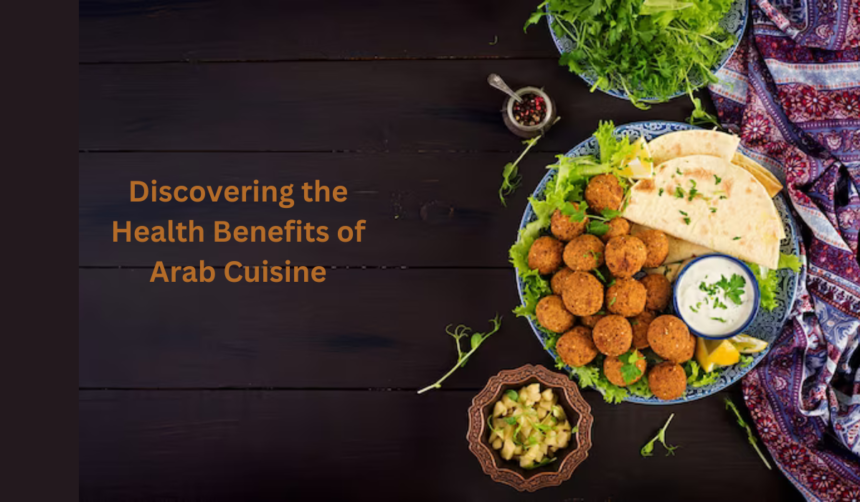Arab cuisine is not only a delicious and flavorful culinary tradition, but it also offers a multitude of health benefits that can improve both your physical and mental well-being. From the use of fresh, wholesome ingredients to the incorporation of herbs and spices known for their medicinal properties, Arab cuisine provides a treasure trove of nutrients and health-boosting properties.
In this article, we will explore the various health benefits of Arab cuisine, diving into the nutritional value of staple ingredients, the use of herbs and spices in promoting wellness, and the impact of traditional cooking methods on overall health. By discovering the health benefits of Arab cuisine, you can not only enjoy its rich and diverse flavors but also enhance your health and well-being in the process.
Heading 1: Nutritional Value of Staple Ingredients
Arab cuisine revolves around a variety of staple ingredients that are not only delicious but also packed with essential nutrients. Ingredients such as whole grains, legumes, vegetables, and lean proteins form the foundation of Arab dishes, providing a balance of macronutrients and micronutrients that are crucial for overall health.
Heading 2: Whole Grains
Whole grains, such as bulgur, couscous, and rice, are commonly used in Arab cuisine and offer a host of health benefits. Rich in fiber, vitamins, and minerals, whole grains can aid in digestion, regulate blood sugar levels, and promote heart health. Additionally, whole grains are a great source of energy and can help you feel full and satisfied after meals.
Heading 3: Legumes
Legumes, including lentils, chickpeas, and fava beans, play a prominent role in Arab cuisine and are known for their high protein and fiber content. Legumes are not only a great source of plant-based protein but also provide essential nutrients such as iron, folate, and potassium. Incorporating legumes into your diet can help lower cholesterol levels, regulate blood sugar, and support weight management.
Heading 4: Vegetables
Arab cuisine celebrates a diverse array of vegetables, including tomatoes, eggplants, zucchinis, and bell peppers. Vegetables are rich in vitamins, minerals, and antioxidants that can support a strong immune system, promote healthy digestion, and reduce the risk of chronic diseases. By incorporating a variety of vegetables into your meals, you can boost your nutrient intake and improve your overall health.
Heading 5: Lean Proteins
Lean proteins, such as chicken, fish, and lamb, are commonly used in Arab cuisine and offer a high-quality source of essential amino acids. Protein is essential for muscle growth, tissue repair, and hormone production, and incorporating lean proteins into your diet can help support a healthy metabolism and promote satiety. Additionally, protein-rich foods can aid in weight management and promote overall muscle health.
Heading 6: Herbs and Spices in Arab Cuisine
Arab cuisine is renowned for its use of herbs and spices, which not only enhance the flavor of dishes but also offer a wide range of health benefits. From anti-inflammatory properties to digestive aids, herbs and spices play a crucial role in promoting wellness and vitality in Arab cuisine.
Heading 7: Turmeric
Turmeric is a staple spice in Arab cuisine and is known for its potent anti-inflammatory and antioxidant properties. Curcumin, the active compound in turmeric, has been shown to have numerous health benefits, including reducing inflammation, boosting immunity, and supporting cognitive function. Incorporating turmeric into your cooking can help reduce inflammation in the body and promote overall health.

Heading 8: Cinnamon
Cinnamon is another commonly used spice in Arab cuisine that is rich in antioxidants and has anti-inflammatory properties. Cinnamon has been shown to help regulate blood sugar levels, improve insulin sensitivity, and reduce the risk of heart disease. Adding cinnamon to your dishes can help support healthy blood sugar regulation and promote cardiovascular health.
Heading 9: Mint
Mint is a refreshing herb commonly used in Arab cuisine that offers a range of health benefits. Mint has been shown to aid in digestion, relieve indigestion and nausea, and help soothe stomach discomfort. Drinking mint tea or adding fresh mint leaves to dishes can help promote digestive health and alleviate symptoms of gastrointestinal issues.
Heading 10: Garlic
Garlic is a versatile ingredient in Arab cuisine that is known for its immune-boosting and antibacterial properties. Allicin, the active compound in garlic, has been shown to have powerful antioxidant effects and can help lower cholesterol levels, reduce blood pressure, and support heart health. Incorporating fresh garlic into your recipes can help boost your immune system and promote overall well-being.
Heading 11: Olive Oil
Olive oil is a staple ingredient in Arab cuisine and is renowned for its numerous health benefits. Rich in monounsaturated fats and antioxidants, olive oil has been shown to help reduce inflammation, lower cholesterol levels, and protect against heart disease. Using olive oil as a primary cooking oil can help support cardiovascular health and provide essential nutrients for overall well-being.
Heading 12: Traditional Cooking Methods
Arab cuisine emphasizes traditional cooking methods that not only enhance the flavor of dishes but also preserve the nutritional value of ingredients. Cooking techniques such as grilling, steaming, and slow cooking help retain the nutrients in foods while minimizing the use of unhealthy fats and oils. By embracing traditional cooking methods, you can enjoy the health benefits of Arab cuisine while savoring its authentic flavors.
Heading 13: Grilling
Grilling is a popular cooking method in Arab cuisine that imparts a unique smoky flavor to meats and vegetables. Grilling allows excess fat to drip away from foods, resulting in lower calorie and fat content compared to frying or sautéing. Grilling also helps retain the natural flavors and nutrients in foods, making it a healthy and delicious cooking option.
Heading 14: Steaming
Steaming is another common cooking technique in Arab cuisine that helps preserve the nutrients in foods without the use of excessive oils or fats. Steaming vegetables, grains, and proteins can help retain their texture, color, and flavor while ensuring that essential vitamins and minerals are not lost during the cooking process. Steaming is a gentle cooking method that can help maintain the nutritional integrity of ingredients and promote overall health.
Heading 15: Slow Cooking
Slow cooking is a traditional cooking method in Arab cuisine that involves simmering ingredients over a low heat for an extended period of time. Slow cooking allows flavors to meld together, resulting in rich and complex dishes that are both satisfying and nutritious. Slow-cooked dishes are often made with lean proteins, vegetables, and herbs, making them a wholesome and comforting option for enhancing your health and well-being.
In conclusion, Arab cuisine offers a wealth of health benefits that can improve your overall well-being and vitality. From the nutritional value of staple ingredients to the use of herbs and spices in promoting wellness, Arab cuisine provides a diverse array of nutrients and flavors that can support a healthy lifestyle. By discovering the health benefits of Arab cuisine and incorporating its principles into your cooking, you can enjoy delicious and nutritious meals that nourish your body and soul. Embrace the traditions of Arab cuisine and savor the bounty of health benefits that it has to offer.
FAQs about “Discovering the Health Benefits of Arab Cuisine”
- What distinguishes “Discovering the Health Benefits of Arab Cuisine” from other books on Arab cuisine? This book focuses specifically on exploring the health benefits associated with Arab cuisine, offering insights into the nutritional value, ingredients, and cooking methods that contribute to its healthfulness.
- Which health benefits are associated with Arab cuisine as discussed in this book? “Discovering the Health Benefits of Arab Cuisine” discusses a variety of health benefits associated with Arab cuisine, including the use of whole grains, legumes, vegetables, and lean proteins, as well as the incorporation of herbs and spices known for their medicinal properties.
- Are specific Arab dishes and ingredients highlighted for their health benefits in this book? Yes, this book highlights specific Arab dishes and ingredients that are particularly beneficial for health, such as tabbouleh, hummus, falafel, lentil soup, grilled fish, and olive oil. It also explores the nutritional value of staple ingredients like chickpeas, bulgur, and tahini.
- How does this book promote a balanced and nutritious approach to Arab cuisine? This book promotes a balanced and nutritious approach to Arab cuisine by providing practical tips, recipe ideas, and dietary recommendations for incorporating healthy ingredients and cooking methods into everyday meals.
- Can readers expect to gain practical advice for adopting a healthier lifestyle through Arab cuisine from this book? Absolutely! “Discovering the Health Benefits of Arab Cuisine” offers readers practical advice, dietary guidelines, and lifestyle recommendations for adopting a healthier approach to eating through the exploration of Arab cuisine. Whether you’re interested in improving your diet or simply curious about the healthfulness of Arab food, this book provides valuable insights and inspiration.
Advantages:
- Health Focus: The title “Discovering the Health Benefits of Arab Cuisine” immediately emphasizes the health aspect of Arab cuisine, attracting readers interested in wellness and nutrition.
- Educational Value: By delving into the health benefits of Arab cuisine, the title offers readers valuable insights into the nutritional properties and potential health effects of Arab ingredients and cooking methods, enriching their understanding of Arab culinary traditions.
- Cultural Exploration: The title invites readers to explore the intersection of health and culture in Arab cuisine, fostering a deeper appreciation for the culinary heritage and traditions of Arab countries.
- Gastronomic Insight: Readers can expect to learn about the diverse range of Arab ingredients and dishes that contribute to a healthy diet, providing them with practical knowledge to incorporate these elements into their own meals.
- Inspiration for Healthy Eating: The title may inspire readers to adopt healthier eating habits by incorporating Arab ingredients and cooking techniques into their diets, encouraging culinary exploration and experimentation with Arab gastronomy.
Disadvantages:
- Oversimplified Health Claims: Focusing solely on the health benefits of Arab cuisine may oversimplify its nutritional value and potential health effects, overlooking other factors such as portion sizes, cooking methods, and overall dietary patterns.
- Cultural Misrepresentation: Without careful analysis and context, the title may inadvertently misrepresent Arab cuisine as inherently healthy, overlooking the diversity of Arab dishes and the presence of less healthy options.
- Limited Scope: The title may not cover every aspect of Arab cuisine’s health benefits in depth, potentially leaving out certain ingredients or health-related practices that could provide a more comprehensive understanding.
- Lack of Nuance: The title may not address the potential side effects or contraindications associated with certain Arab ingredients or cooking methods, potentially presenting a one-sided view of their health benefits.
- Audience Engagement: While the title appeals to readers interested in health and nutrition, it may not attract those seeking practical cooking tips or recipes, limiting its audience appeal.
















